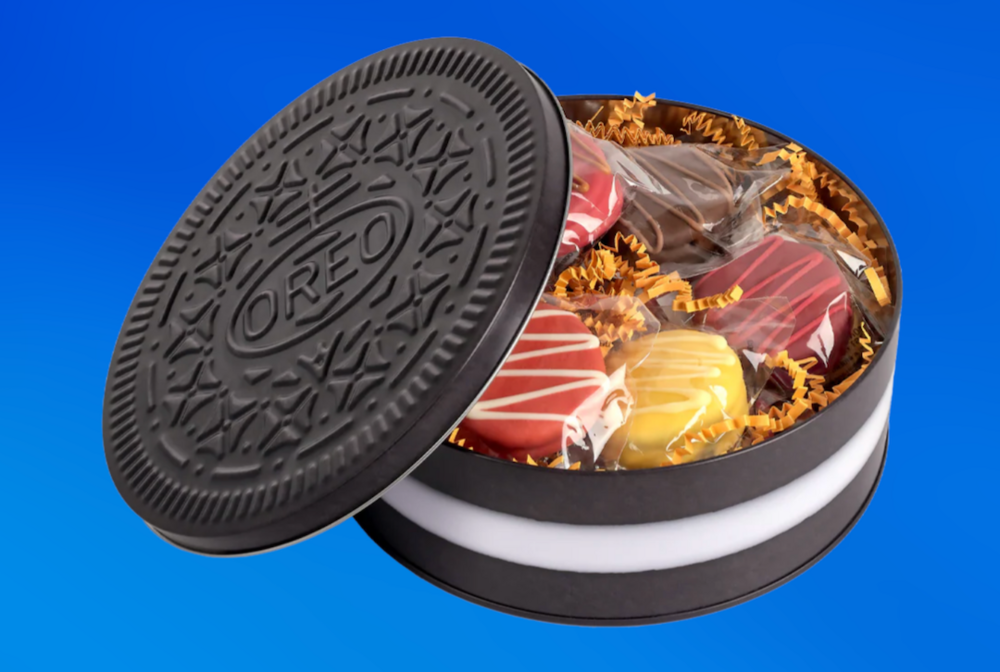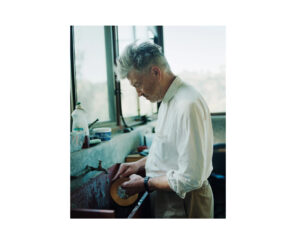In honor of Earth Day, we celebrate denim, sustainability, and the power of small steps to create lasting impression.
Every brand has a tagline. At Madewell, ours is more than just words. Doing well by doing good is a principle that runs through every seam of what we make and every decision we stand by. This Earth Day, we pause to reflect on one of our most meaningful contributions to the planet—not just in style, but in action: our partnership with Cotton’s Blue Jeans Go Green™ program.
Since joining forces, we’ve recycled over 1.6 million pieces of denim—transforming old jeans into something new, useful, and surprisingly warm: housing insulation, pet bed inserts, and other everyday essentials that extend far beyond fashion.
But this isn’t just about jeans. It’s about what they represent. A more circular system. A more conscious customer. A more thoughtful future.
The Denim Story: Iconic, Durable, and—Yes—Wasteful
Let’s start with the basics: denim is a cultural icon. From 1950s rebellion to 2020s revival, jeans have remained a staple of personal style. They’re rugged, comfortable, timeless—and everywhere.
But denim’s environmental footprint is hard to ignore.
It can take upwards of 1,800 gallons of water to produce a single pair of jeans. Add in pesticides from conventional cotton farming, energy-intensive dyeing processes, and the carbon footprint of global shipping, and the reality becomes clear: our beloved blues come with a cost.
That’s where programs like Blue Jeans Go Green™ come in. And that’s where Madewell made a conscious decision—not to stop making jeans, but to start rethinking what happens after they’re worn.
Closing the Loop: How the Program Works
Launched in 2006, Cotton’s Blue Jeans Go Green™ initiative was created to collect worn denim and divert it from landfills. But the program doesn’t just recycle—it upcycles.
Here’s what that looks like:
- Collection: Customers drop off their old jeans—any brand, any condition—at participating Madewell stores nationwide.
- Sorting: The denim is sorted and processed. Items that can be resold or donated are handled accordingly. The rest? It’s shredded.
- Transformation: The shredded denim becomes something entirely new: natural cotton fiber insulation. No added chemicals. No synthetic fillers. Just clean, post-consumer material repurposed for good.
- Distribution: That insulation is then donated to nonprofit building projects and community organizations, including Habitat for Humanity affiliates across the U.S.
One pair of jeans may seem like a small gesture. But multiply that by over 1.6 million and you’re talking about a literal ton of material diverted from waste and put to use.
Beyond Insulation: Denim’s Second Life
Recycling denim into housing insulation is one of the program’s most visible outputs—but it’s not the only one.
Pet bed inserts, soundproofing material, and even art installations have incorporated recycled denim. The common thread? All these applications rely on cotton’s natural properties: breathability, thermal resistance, durability.
It’s a unique full-circle moment. A product once worn close to the skin finds a second life bringing warmth, comfort, and care in entirely new forms.
Why It Matters: Fashion’s Sustainability Reckoning
The fashion industry is at a turning point. Globally, it produces an estimated 92 million tons of textile waste every year. That’s one garbage truck’s worth of clothing every second.
Landfills are overflowing. Synthetic fabrics are leaching microplastics into the ocean. The call for change is growing louder—and circularity is becoming one of the most promising answers.
At Madewell, we’ve always believed in making clothes that last. But we also know that even the most beloved pair of jeans has a lifespan. What happens next shouldn’t be an afterthought. It should be an opportunity.
Recycling isn’t the whole answer, but it’s a vital part of a larger shift—away from disposable fashion and toward a regenerative future.
The Madewell Denim Recycling Tour
In 2019, we decided to take the message on the road.
The Madewell Denim Recycling Tour was a traveling initiative that popped up in cities across the U.S.—New York, Los Angeles, Austin, Chicago. At each stop, we invited customers to drop off old denim, learn about the recycling process, and take part in community workshops on repair, reuse, and styling vintage.
The response was overwhelming. Not just in the number of jeans collected, but in the conversations sparked—about quality, longevity, and the stories our clothes carry.
Denim With a Conscience: What We’re Doing on the Front End
While recycling is critical, we’re also working hard to reduce impact from the start. That means:
- Sustainable Sourcing: Increasing the percentage of our denim made with certified organic cotton and regenerative practices.
- Water Conservation: Using innovative wash techniques that reduce water usage by up to 95% compared to conventional methods.
- Fair Labor Practices: Partnering with factories and mills committed to ethical treatment of workers and environmental transparency.
- Timeless Design: Making jeans that don’t chase fast trends. Because the most sustainable clothes are the ones you keep wearing.
Customer Action: How You Can Join
Earth Day isn’t about perfection—it’s about participation. And our denim recycling program makes it easy for anyone to get involved:
- Bring It In: Drop off any brand of jeans—just make sure they’re 90% cotton or more.
- Get Rewarded: As a thank you, we’ll give you $20 off a new pair of Madewell jeans.
- Repeat: Recycle again next season. Spread the word. Keep the cycle going.
And remember: even if your jeans are ripped, stained, or way past their prime, they still have value. You’re not throwing them away—you’re giving them a new beginning.
Stories from the Community
Some of our favorite moments come not from spreadsheets or stats, but from people.
There was the artist in Portland who used recycled denim insulation in her tiny home. The student in Atlanta who wrote a thesis on sustainable fashion after attending a Madewell recycling event. The grandmother in Boston who brought in five pairs of jeans from three generations of her family—symbolizing not just change, but continuity.
Each donation is a gesture. Each pair of jeans has a past and a future.
Earth Day 2025: A Look Ahead
This Earth Day, we celebrate a milestone—but we also look forward.
Our goals are growing. By 2030, we aim to:
- Double our recycled denim totals.
- Expand our in-store recycling to more locations globally.
- Introduce closed-loop denim manufacturing, using recycled cotton fibers from old jeans to make new ones.
- Partner with more community-based organizations to amplify the impact of insulation donations.
Sustainability isn’t a destination. It’s a direction. And we’re committed to walking that path with clarity and care.
Why It’s More Than Just Denim
Denim is where we started. But doing well by doing good goes beyond one material.
We’re applying circular thinking across our business: exploring garment repair services, reducing plastic in packaging, testing natural dyes, and constantly asking how we can do better.
Because in the end, Earth Day isn’t about one day. It’s about creating systems—of fashion, of business, of community—that reflect the values we want to live by.
Thank You by Madewell..
To everyone who has dropped off a pair of jeans. To every employee who has folded them, tracked them, and packed them. To the nonprofits who turn them into insulation. To the customers who keep asking the right questions. Thank you.
Sustainability can feel overwhelming. But it starts with action. Small, humble, human.
That’s what we’re celebrating this Earth Day.
That’s what we’re building, together.
No comments yet.







